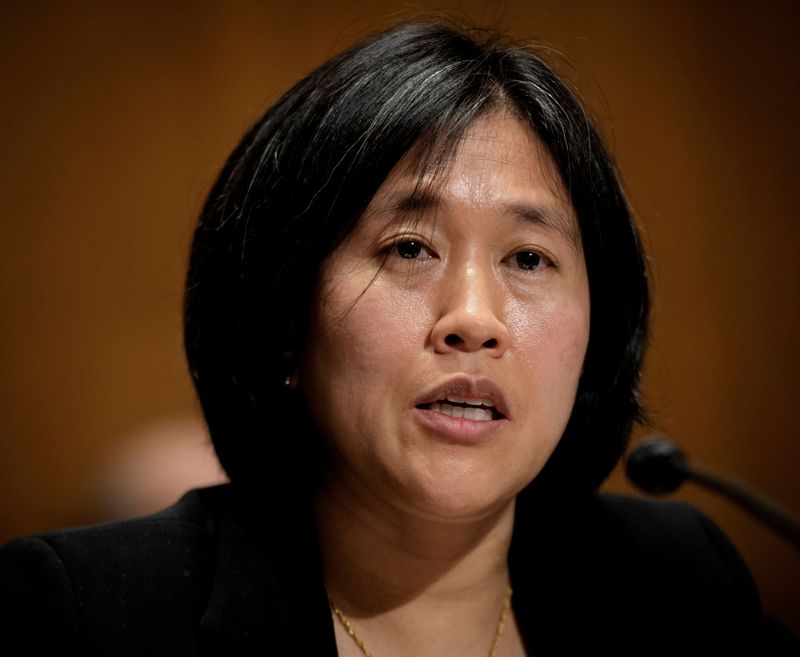By Andrea Shalal
WASHINGTON (Reuters) -U.S. Trade Representative Katherine Tai on Thursday laid out her vision for using trade policy to protect the planet and combat climate change, and said the United States must be a leader in preventing a catastrophic environmental chain reaction.
President Joe Biden’s top trade negotiator said U.S. climate protection efforts should not lead to the export of polluting industries to countries with lower standards, and comprehensive, global action was the only solution to meet such challenges.
In a wide-ranging speech at the Center for American Progress, Tai said the World Trade Organization needed new rules to address the current corporate incentives that had resulted in a “race to the bottom” that put countries with higher environmental standards at a competitive disadvantage.
“The science indicates that, the window of opportunity to prevent a catastrophic environmental chain reaction on our planet is closing fast. And the United States must be a leader in the collective effort to work toward a global solution,” Tai said.
Tai’s speech comes a week before Biden convenes world leaders for a summit on climate change, and signals a shift to more aggressive efforts by Washington to promote energy-efficient and low-emissions technologies.
The United States hopes to restore its shattered credibility at the summit by pledging to cut its greenhouse emissions by at least half and securing pledges from allies for faster reductions, two sources familiar with the matter told Reuters this week.
Tai said her goal was to promote “fair competition that does not suppress environmental protection,” noting that global trade rules should also protect workers and address equity issues.
She highlighted the need to develop environmental technologies, goods and services, as well as strategic supply chains to ensure the transition away from fossil fuels.
That would require pushing for bold reforms that ensured clean energy use throughout the supply chain, she said. New global agreements to end illegal logging and address overfishing were also needed, she said.
Tai also vowed to rigorously enforce a new U.S.-Mexico-Canada trade agreement that took effect in July, saying it contained the most comprehensive environmental standards of any U.S. or global trade accord, although she acknowledged that its failure to explicitly acknowledge climate change was a “glaring omission”.
(Reporting by Andrea ShalalEditing by Alexandra Hudson)






















